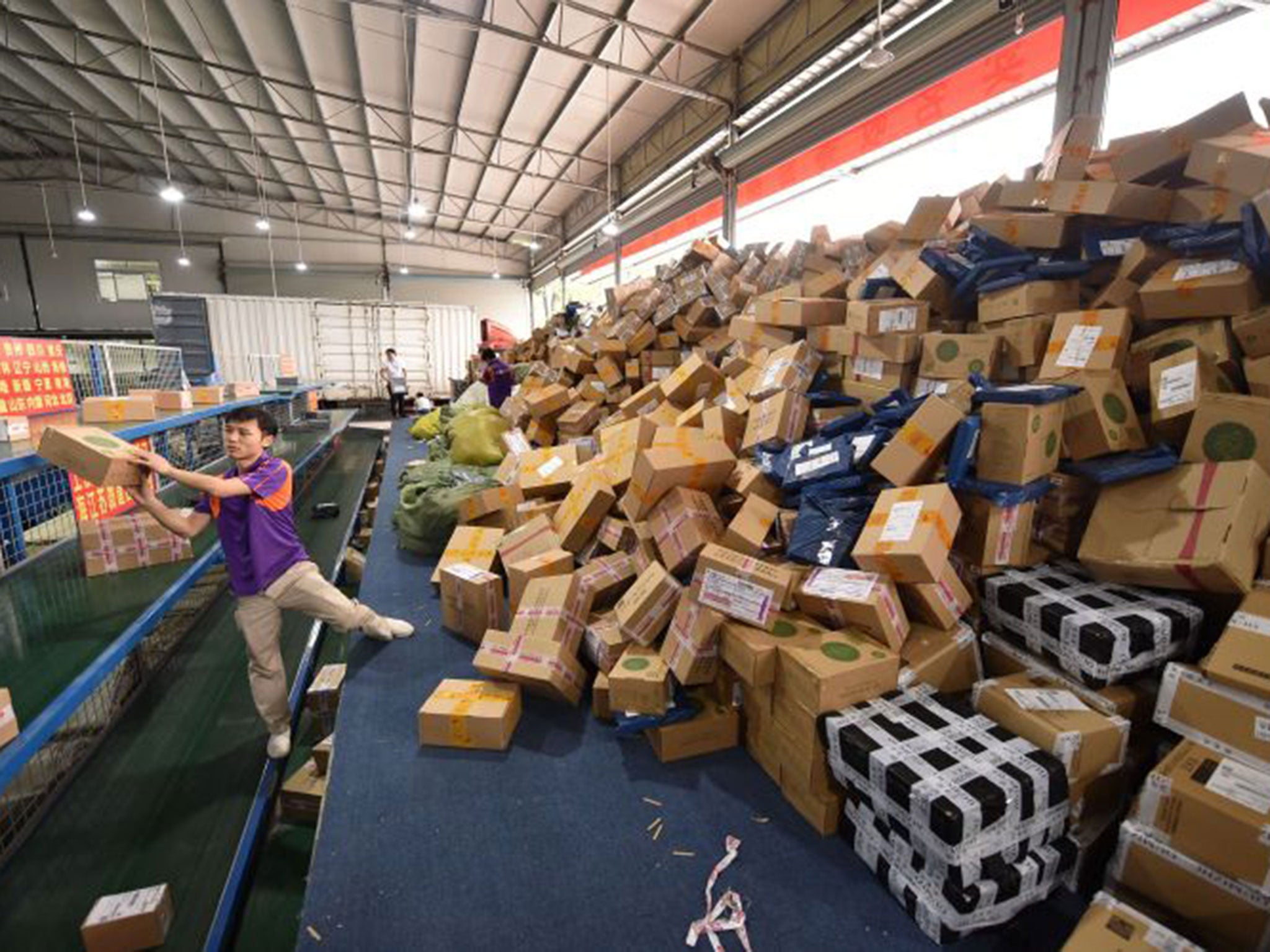4 charts that show Singles Day cannot save China from economic slowdown
Behind the headlines, demand in China is slowing

Singles Day 2015 was the biggest online shopping day in history. Alibaba made sales worth $10 billion, according to their own figures, beating last year’s record of $9.3 billion in the first 12 hours.
About 200 million transactions had been processed by the firm by about 8.20am, Alibaba said.
Alibaba founder Jack Ma even got a call from the Chinese prime minister Li Keqiang, in support of the shopping bonanza.
Behind the headlines, demand in China is slowing.
Consumer inflation dipped further last month due to lower food prices. Economists see this as a sign that consumer demand is lessening and that the Chinese economy is slowing – despite Singles Day continuing to grow.
Rather than signalling that the Chinese economy is bouncing back, Singles Day shows that shopping habits have been distorted. Many Chinese now save their purchases for Singles Day but are still spending less over time, contributing to slowing over all retail sales in the last five years.
Over the last five years, retail sales in China have declined
Online shopping is expected to be a $1 trillion industry by 2018 or 2019. So while Alibaba’s revenue growth is impressive, it fits a wider trend of people choosing to shop online.
“China’s e-commerce market is predicted to grow to $1 trillion in the next 2-3 years, and with the Chinese government reducing tariffs on selected consumer goods in order to spur consumption, Singles’ Day spend is likely continue to soar,” said David McCorquodale, UK Head of Retail at KPMG.
Online sales are growing in China - but that growth is slowing
Alibaba also has some sneaky ways of boosting its sales total on Singles Day, such as schemes for customers to pay for purchases in instalments, but make their final payment on the November 11.
As more people get used to shopping online, growth in online shopping will slow from a forecast 32 per cent growth next year to 16 per cent growth by 2016, which may be why Chinese retailers are looking beyond China.
Daniel Craig was at the Singles Day gala. Kevin Spacey appeared in the Alibaba ad online. The big Hollywood stars are there because Alibaba wants to turn Singles Day into a global online shopping phenomenon, just as it turned it into a national one, to make sure it continues to beat sales records in the future.
Chinese shoppers buy one-third of their goods overseas - now China wants us to do the same
Chinese customers already make, on average, 28 per cent of their luxury purchases overseas to take advantage of cheaper prices. George Osborne said that relaxing visa rules for Chinese tourists could boost the UK economy by £1.2 billion.
China wants to see that trend reversed, so international shoppers take advantage of its deals too.
There are already signs that this is happening. Royal Mail teamed up with Alibaba to offer UK shoppers two week delivery on items bought in China ahead of Singles Day.
Boosting international consumer spending could be one way for China to keep up its target GDP growth of 6.5 per cent over the next five years - but it is not going to stop its economy slowing in the short term.
Subscribe to Independent Premium to bookmark this article
Want to bookmark your favourite articles and stories to read or reference later? Start your Independent Premium subscription today.

Join our commenting forum
Join thought-provoking conversations, follow other Independent readers and see their replies